Encourage socialization of community drug rehabilitation work
According to National Assembly Deputy Nguyen Van Manh ( Phu Tho ), the draft currently stipulates two forms of voluntary drug addiction treatment; including voluntary drug addiction treatment at home and in the community after treatment at a private drug facility. However, the delegate said that for drug addicts who undergo drug addiction treatment at compulsory drug addiction treatment centers, whether or not to organize drug addiction treatment at home and in the community also needs attention. In addition, the delegate suggested that it is necessary to study the mechanism, encourage organizations and individuals to provide drug addiction treatment services and manage drug addicts, and socialize drug addiction treatment work in the community.

Regarding Article 35 on compulsory drug addiction treatment for people from 12 years old to under 18 years old, the draft stipulates in point b, Article 27 on drug addiction treatment facilities “b) Reformatory schools, implementing voluntary and compulsory drug addiction treatment for people from 12 years old to under 18 years old”. However, currently, not all provinces have reformatory schools. Therefore, delegate Nguyen Van Manh suggested that there should be open regulations, that is, places with reformatory schools and close distances will focus on basic drug addiction treatment plans in reformatory schools, while the remaining difficult and complicated places will be classified and sent to compulsory drug addiction treatment centers.
On the other hand, it is necessary to study flexible regulations, suitable to the practice of implementing the decision to send drug addicts to a public drug rehabilitation facility within 24 hours of receiving the Court's decision on applying administrative measures to send them to a compulsory rehabilitation facility.
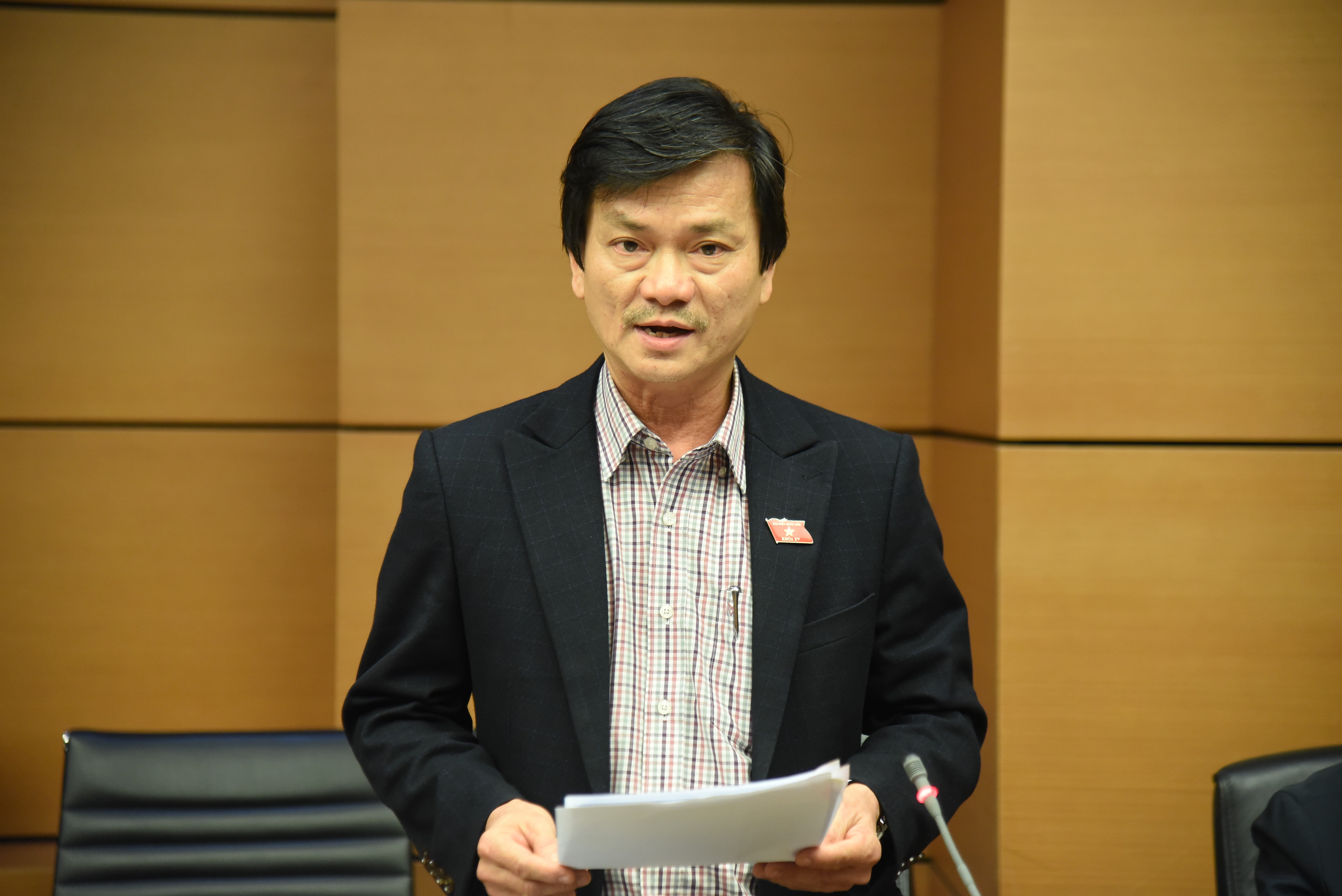
From another perspective, National Assembly member Duong Binh Phu (Dak Lak) said that assigning the task to reform schools to carry out voluntary drug addiction treatment is not really suitable for the specific management model of reform schools, which is only for groups of subjects with illegal behavior. In addition, currently, Clause 4, Article 35 of the draft Law also stipulates that drug addicts from 12 to under 18 years old must undergo compulsory drug addiction treatment at reform schools. Therefore, it is recommended that the drafting agency consider the regulation in the direction that reform schools carry out compulsory drug addiction treatment for people from 12 to under 18 years old.
Clarifying the authority and process of drug testing
National Assembly Deputy Le Tat Hieu (Phu Tho) also reflected that in reality, the rate of people who have gone to drug rehabilitation and recovered completely is not high. Therefore, it is necessary to strictly control the intake of drug addicts. According to statistics, this group of people often focuses on minors.

Articles 6, 7, and 8 clearly stipulate the responsibility for drug prevention and control of individuals, families, state agencies, and educational institutions. However, delegates suggested that the Government should be assigned to specifically and specifically regulate the role of families in managing and preventing drugs. From there, a close coordination mechanism between families, schools, and functional agencies should be built to strictly manage these subjects. In addition, it is necessary to universalize high school to both improve qualifications and increase the time students spend in school to ensure that the process of personality formation is more complete and rigorous.
Sharing the same view, National Assembly Deputy Nguyen Van Manh said that in Clause 2, Article 8, which stipulates the responsibility of schools in coordinating with agencies, organizations and local authorities to manage and educate students on drug prevention and control, it is necessary to add close coordination with the police force to inspect and control stimulant and addictive products around schools, and prevent subjects that can entice students.
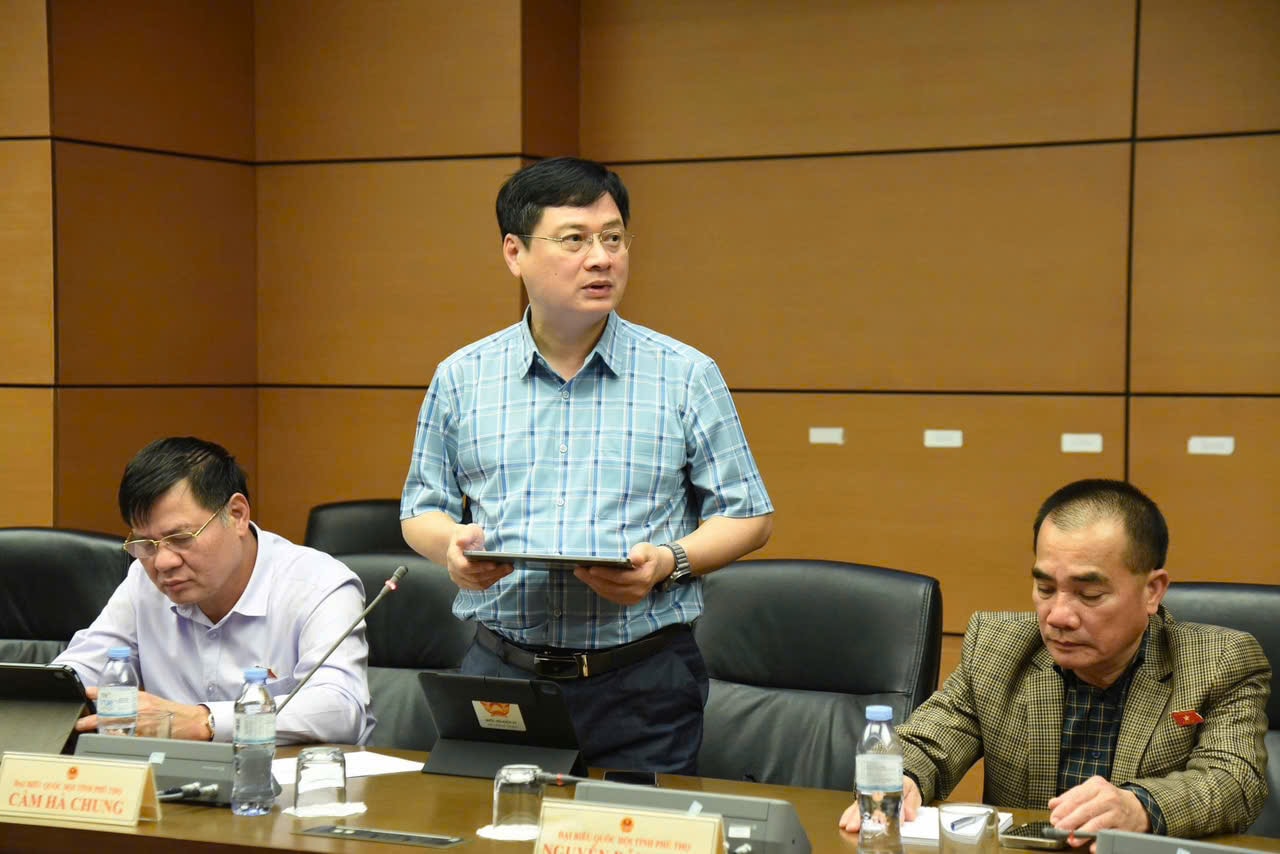
Commenting on the regulation on drug testing in the body (Article 22), National Assembly Deputy Cam Ha Chung (Phu Tho) suggested that it is necessary to clarify the authority and testing process to avoid abuse of power or overlap. Specifically, it should be stipulated that the People's Committee at the commune level or the agency assigned by the Government has the right to request administrative testing for people showing signs of illegal drug use; the investigation agency conducts testing in cases where there is a basis to determine criminal offenses; the State guarantees funding for the first test, and at the same time allows the tested person to request re-testing when suspecting incorrect results. This regulation helps ensure human rights and civil rights in administrative management activities, while increasing transparency, fairness and accuracy in determining drug use status.

Currently, there is a lack of consistency between the draft Law on Drug Prevention and Control (Article 34) and Article 256a of the Penal Code in the provisions on the act of "using drugs while undergoing drug rehabilitation". Specifically, the current Law deals with administrative sanctions; the Penal Code defines it as a crime. Delegate Cam Ha Chung suggested that the drafting agency and the examining agency unify their viewpoints, ensuring "one act - one sanction", avoiding overlapping laws, causing difficulties for enforcement agencies and affecting citizens' rights.
Regarding the policy for lecturers, teachers, and vocational trainers in Article 23, National Assembly Deputy Duong Binh Phu suggested that the drafting agency clarify the basis and legal basis of the additional policy contents for lecturers, teachers, and vocational trainers compared to the provisions in the current Law on Vocational Education and the Law on Teachers. Regarding the general provisions on policies for lecturers and teachers, it is recommended that they only be stipulated in the Law on Teachers to avoid duplication, facilitate implementation, and ensure consistency in legal provisions; only stipulate in the amended Law on Vocational Education for the specific content of vocational education.
Source: https://daibieunhandan.vn/kiem-soat-ngan-chan-kip-thoi-cac-san-pham-gay-nghien-xung-quanh-truong-hoc-10395286.html


![[Photo] Chu Noodles - the essence of rice and sunshine](https://vphoto.vietnam.vn/thumb/1200x675/vietnam/resource/IMAGE/2025/11/11/1762846220477_ndo_tl_7-jpg.webp)




![[Photo] Prime Minister Pham Minh Chinh receives Lao Minister of Labor and Welfare Phosay Sayasone](https://vphoto.vietnam.vn/thumb/1200x675/vietnam/resource/IMAGE/2025/11/11/1762872028311_dsc-2246-jpg.webp)




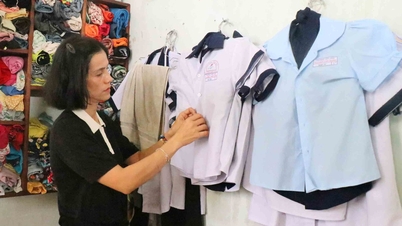

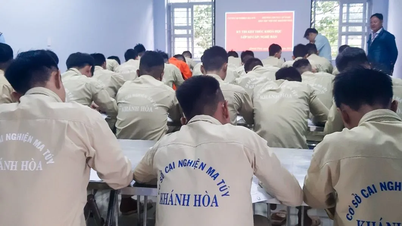














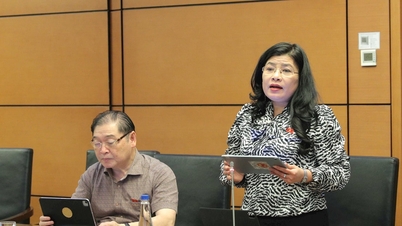




































































![Dong Nai OCOP transition: [Article 3] Linking tourism with OCOP product consumption](https://vphoto.vietnam.vn/thumb/402x226/vietnam/resource/IMAGE/2025/11/10/1762739199309_1324-2740-7_n-162543_981.jpeg)








Comment (0)